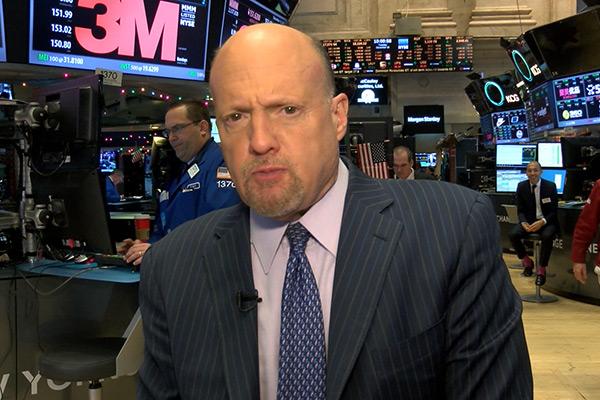
These “Seven Deadly Sins” can kill your portfolio in the current market conditions, Jim Cramer said Saturday ias part of at TheStreet’s Boot Camp for Investors in New York.
“You must avoid [these things] if you’re going to pick the right stocks,” the expert said, according to his prepared remarks.
Here’s a rundown of seven things that Cramer said can wipe out your stocks:
Rising Interest Rates
Higher rates can hurt stocks of companies like homebuilders, which rely on affordable mortgage rates for their customers. “Nobody trusts the homebuilders past the day they report because the litany is always: ‘This is the last good quarter when it comes to Lennar , Toll Brothers , D.R. Horton , Taylor Morrison and PulteGroup.'”
Bond Yields That Compete With Dividends
Cramer said that with the risk-free 10-year U.S. Treasury bond yielding around 3% right now, a stock with a 3% dividend yield “means nothing now. … That’s why the consumer-packaged-goods stocks — almost all yielding 3% — not no traction until late last week when rates simmered down.”
Higher Input Costs Can Be Deadly
Rising prices for a company’s inputs can be bad news for any stock, Cramer said. “When anyone sees a spike in any raw cost line — whether it be lumber, chemicals, freight, you name it — that stock’s going lower.”
Trump
Cramer said President Donald Trump no longer stops with just one nasty tweet about a company he dislikes like Amazon. “Your new rule is that when the president attacks, it’s the beginning not the end of the war,” he said. “So, keep your powder dry for multiple ripostes.”
China
“These days, anything with a China input of any sort is pretty much too dangerous to own,” Cramer said. “It doesn’t matter if we sell it in China or if we import it from China — any Chinese [exposure] is a simple negative because of the tit-for-tat” reactions in any U.S.-Chinese trade dispute. “The only problem is that our president has to deal with the rule of law. … The Chinese government can order a boycott on everything from the iPhone to Starbucks to KFC, but the president has not been similarly inclined on our end.
However, Cramer did have some positive advice about dealing with China. “The one thing I tell people is that if you want surefire China trades: you go long Yum Brands and short Yum China, as they have similar growth rates and similar price to earnings multiples, but only one can be brought low by the [People’s Republic of China].”
The ‘Death Star’: Amazon
“There only a handful of companies that can beat Amazon at its own retail game,” Cramer said. The only ones he sees are Dollar Tree Inc., Dollar General Corp., TJX Cos., Ross Stores Inc., Costco Wholesale Corp. Home Depot Inc. and Ollie’s Bargain Outlet Holdings Inc.
The stockpicker said these companies “all come underneath Amazon’s pricing, with the exception of Home Depot, but it has customer-service technology that is superior to that of Amazon, and that’s why it’s still a buy. Contractors do not want to buy through Amazon.
“Everyone else? Guilty until provide innocent,” Cramer said. For instance, he warned that you should “never trust a supermarket stock again. They simply exist at the behest of Amazon. If the Death Star chooses to adopt the Whole Foods roadmap that existed before [Amazon bought Whole Foods], there will be 800 new Whole Foods built in the next couple of years. They have the sites. They have the cash. They will flood the nation with new Whole Foods and charge much less than everyone else, as is their way.”
Beware of Autos Stocks
Cramer said many view U.S. auto stocks as value traps, due to a combination of big problems.
For instance, he said automakers need to spend billions of dollars developing self-driving cars at the same time when they can’t politically move U.S. plants to Mexico. “So, they have to stay with $30-an-hour [U.S.] employees instead of $3-an-hour [Mexican] workers—with high health care costs instead of the state paying for medical, and very high absenteeism,” Cramer said. “If that weren’t enough, we have a sharing economy where kids no longer yearn for cars as soon as they can buy them.”

